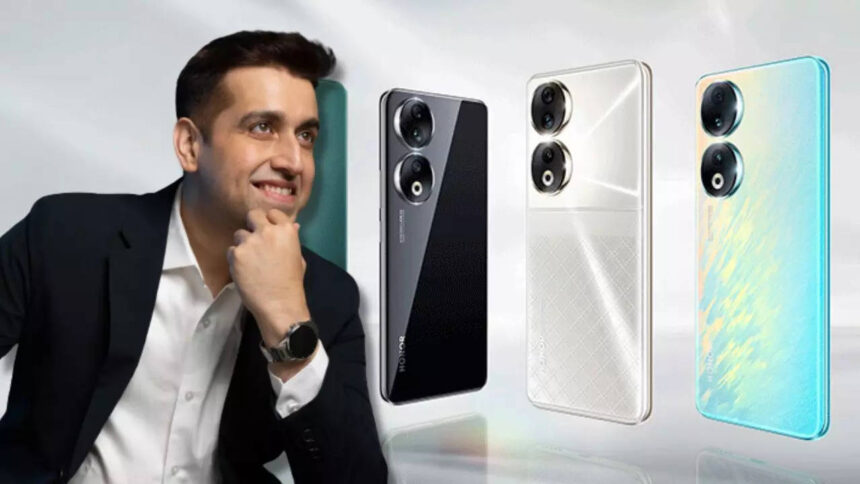To appreciate the impact of the next AI revolution, it is necessary to examine the previous mobile revolution.
Updated September 22, 2023 | 6:30 p.m. IST
Madhav Sheth, CEO, HTech India
The Internet revolution of the mid-1990s was followed by the mobile revolution of the early 2010s. Since the start of the mobile revolution, billions of smartphones have been manufactured. These phones have become an integral part of the lives of billions of people across the planet. The most recent revolution – the AI revolution – began in late 2022 and may very well eclipse the internet and mobile revolutions of the past.
To appreciate the impact of the next AI revolution, it is necessary to examine the previous mobile revolution.
Smartphones are extensions of ourselves
At the start of the mobile revolution, several Indian brands entered the market. They believed they could compete with more expensive foreign brands by selling their products at a lower price. These budget phones had lower specifications and fewer features than their more expensive competitors. Indian brands believed that the price-conscious Indian consumer would overlook these flaws.
It turns out that when it comes to smartphones, even the most price-conscious consumers are looking for a phone with relatively solid specs and features. The reason is simple: people’s daily lives revolve so much around their phones that they don’t want to compromise on the quality of their device. They are more than willing to pay a higher price for a better quality product.
Phones keep people connected on social media and provide easier access to essential services, including banking and shopping. They allow people to get microloans in seconds and give them unlimited access to movies and music, often for free. And, perhaps most importantly, they allow people to share their lives with the world. Smartphones have therefore become extensions of the human being. They are an integral part of the daily life of modern people.
The data generated by billions of smartphones over the past decade has played an important role in the current AI revolution. The latest smartphones are now integrated with AI. These phones will further transform the way people work, live and conduct their daily lives.
AI-Powered Smartphones – Light Years Ahead
AI – in the form of large language models – has captivated the world in 2022. People have started using AI to write about a number of topics.
However, AI is capable of much more. It is literally a different kind of intelligence – even if it has no agency or sentience. Experts today use AI as a sounding board. They go beyond ideas to see things from a different perspective. Mathematicians use it to examine their proofs. It is postulated that AI might even be able to write new mathematical proofs in some time!
AI-enabled smartphones contain intelligence. Thanks to this intelligence, they will integrate into the rhythm of their owners’ lives in a way that smartphones have never done before. While the first iteration of AI-powered smartphones may fail to transform people’s lives, subsequent iterations will change the way people live as radically as the shift from feature phones to smartphones changed daily life .
The first iteration of AI-based smartphones will improve human-AI interaction.
The first iteration of AI-powered smartphones
Smartphone users all over the world love clicking photos with their phones. Consumers always consider the quality of a camera before making a purchasing decision. This is why most phones in a segment have comparable cameras.
There are other facets to AI-based smartphones that consumers need to consider.
AI-based phones can quickly suggest the optimal video mode just when one is about to click a photo. They also automatically eliminate background noise to help create video that sounds as clear as movies shot by professionals using state-of-the-art equipment. In the days to come, the AI photography capabilities of these phones will become as much of a factor influencing consumers’ purchasing decisions as the phones’ camera specifications are today.
These new phones will automate their owners’ workflows, making people much more productive. That’s not all. Voice assistants in upcoming AI phones will become people’s permanent secretaries. They will optimize schedules, keep people informed of the latest happenings in their professional and personal lives and much more. In short, interactions between people and smartphones will become a two-way street rather than the almost one-sided interaction it was in the past.
Despite the mobile revolution, worker productivity, which has barely increased over the past decade, may finally receive a much-needed boost!
A chance to lead the AI revolution
The demand for AI-based smartphones will definitely increase worldwide in the coming years. By manufacturing such phones domestically, India can help meet much of this demand. Additionally, manufacturing such phones in India will enable more Indian companies to gain the expertise needed to develop cutting-edge AI smartphones. With such expertise, Indian manufacturers – who, at the start of the mobile revolution, relied on competitive pricing to differentiate themselves – will be able to differentiate themselves on something that consumers value much more: exceptional technology.
The AI ecosystem developing in India will prove to be a fertile ground for Indian developers who will have the necessary resources to develop innovative AI-based solutions for India and the world. Think about wearable devices that predict disease onset long before symptoms appear!
A chance to lead
The impending AI revolution is an opportunity for Indian technology companies to regain their former glory.
By integrating AI into as many facets of the country’s economy as possible and letting Indian entrepreneurs innovate with this technology to develop new solutions for the domestic and global market, India has a good chance of becoming the one of the leaders of the next AI revolution. The possibilities offered by AI – a new type of intelligence – are almost as infinite as those possessed by billions of humans.
India was a latecomer to the Internet revolution and almost completely missed the mobile revolution. The coming AI revolution offers India a real chance to catch up with Silicon Valley and Chinese tech giants. Building an ecosystem that promotes AI smartphone manufacturing is one step toward achieving this.
This article was written by Madhav Sheth, CEO of HTech India.











